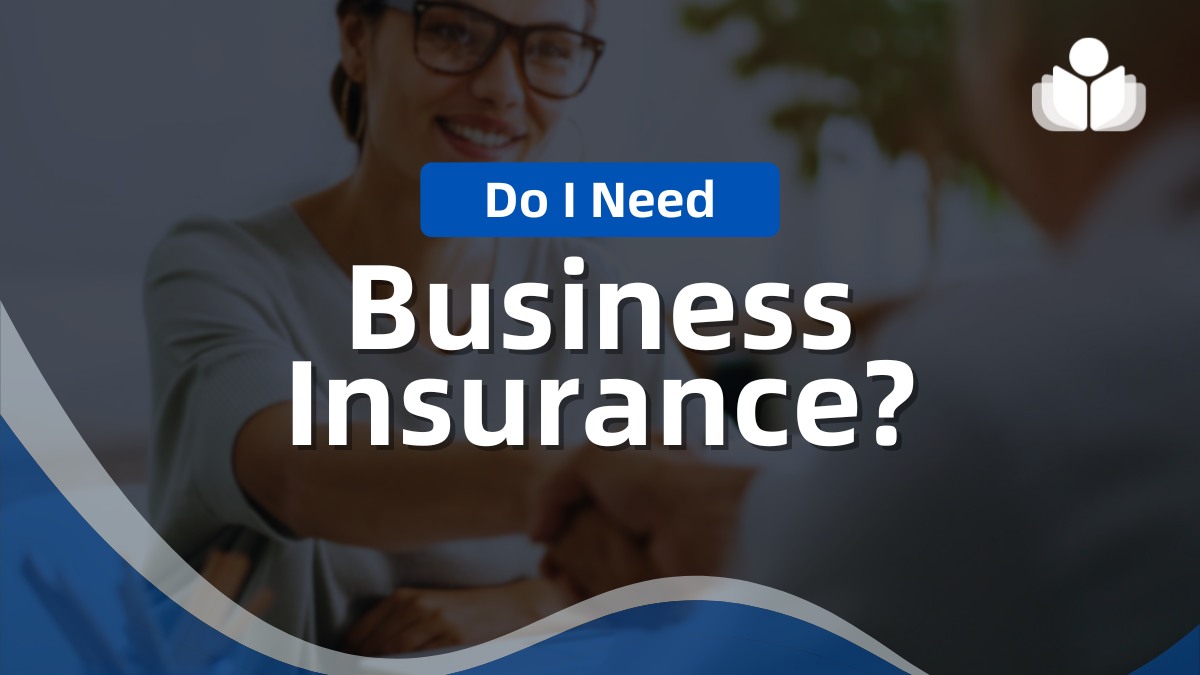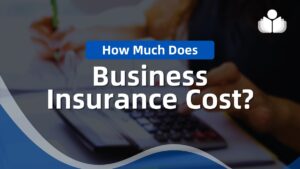Starting a business can become expensive quickly. With the growing number of bills, it might be tempting to skip purchasing business insurance.
However, business insurance protects your company assets in the event of accidents, certain natural disasters, and other operational interruptions. Without business insurance, you would have to cover any claims or damages out of pocket, which could easily devastate a small business.
This guide walks you through key considerations when deciding whether or not to buy business insurance.
>> Explore NEXT for Comprehensive Coverage >>
What Is Business Insurance?
Business insurance protects companies from financial losses and liability after:
- Employee illness and injury
- Income losses
- Property damage
- Theft
- Lawsuits
Business insurance works similarly to medical insurance and other types of coverage. First, businesses take out a policy based on their risks and potential losses. Then, after an incident, the business can submit a claim for coverage. Additionally, business insurance can help reduce legal liability.
What Is Business Liability?
Business liabilities encompass the financial debts and legal commitments that a business is accountable for presently or in the future. Typically, they predominantly entail financial obligations. Insurance serves as a safeguard for businesses against such liabilities.
What’s the Difference Between Limited Liability and Insurance?
Limited Liability Companies (LLCs) shield owners from legal actions and financial obligations. The term “limited liability” denotes this safeguard. Liability insurance, on the other hand, pertains to a policy acquired for the business. Here’s a clearer breakdown:
Limited liability shields owners from the financial responsibilities and penalties of the business.
For instance, in the event of an LLC’s bankruptcy, owners are not obliged to utilize personal assets to settle the debts. Insurance, meanwhile, shields businesses from incurred liabilities and financial obligations. It additionally provides financial security against natural calamities, data breaches, and certain legal actions.
When Do You Need Business Insurance?
To determine the necessity of business insurance, consider two key inquiries:
Does your business possess valuable assets, such as inventory, computer systems, and other equipment, that would pose significant financial strain to replace? Insurance may not be imperative if your business assets are limited to a single laptop. However, insurance becomes essential if your inventory amounts to tens of thousands of dollars.
Is there a possibility that your business could face substantial legal claims? Accidents on your premises, data breaches, or instances where products you manufacture or sell cause harm could lead to lawsuits. If such scenarios are likely, obtaining commercial and legal business insurance becomes crucial for risk mitigation.
>> Secure Your Future – Get Covered With Next! >>
Types of Business Insurance
The optimal type of business insurance is contingent upon your specific business model. Chris Rhodes, chief insurance officer at NEXT Insurance, explains that business insurance encompasses a diverse array of insurance coverages designed to safeguard businesses against various risks and losses.
“Tailoring your business insurance package to your specific activities and operations may entail a combination of several insurance products,” Rhodes notes. These may include general liability, workers’ compensation, and property insurance.
To streamline your selection process, I’ll delineate the various types of business insurance available.
Types of Liability Insurance
Limited liability insurance covers legal or medical expenses incurred when you are deemed accountable for damages. The primary types of limited liability insurance include:
- General liability insurance: This type covers your legal responsibilities and defense costs arising from accidents, injuries, and negligence. It’s important to note that even home-based businesses require liability insurance, as homeowners’ policies typically do not cover business liability risks.
- Professional liability insurance: Also known as errors and omissions insurance, this coverage is designed for individuals in service occupations. It shields professionals from liability resulting from negligence or malpractice while performing their professional duties.
- Product liability insurance: This coverage is essential for manufacturers, wholesalers, distributors, and retailers. It safeguards against liability claims if a product is deemed unsafe and causes harm to consumers.
- Employment practices liability insurance: This type protects companies from claims related to employment practices, such as wrongful termination or discrimination allegations.
Types of Commercial Property Insurance
Commercial property insurance is designed to safeguard your physical assets and provide financial assistance in the event of damage. Various policies are available, including:
- Property insurance: This policy reimburses damage or destruction to your property resulting from events such as fire, storms, or theft. If you operate a home-based business, it’s crucial to ascertain whether your homeowners’ policy extends coverage to your business property.
- Vehicle insurance: This type of insurance covers damage to vehicles used for business purposes and liabilities arising from accidents involving these vehicles.
Types of Business Income Insurance
To mitigate lost income, insurance options include:
- Business interruption insurance: This coverage assists in offsetting expenses incurred due to relocation, employee wages, and rent payments in the event of a fire or other disruptive occurrences leading to a temporary shutdown. Some insurers may label it as business income insurance.
- Extra expense insurance: This policy covers unforeseen expenses following a disruptive event impacting your workplace. Typically, these funds are allocated towards repair costs and property replacement.
Other Types of Business Insurance
Other prevalent types of business insurance comprise:
- Workers’ compensation insurance: This policy compensates for lost wages and medical expenses injured employees incur. Nearly all states mandate workers’ compensation for employers with a certain number of employees.
- Identity theft insurance: Also known as data breach insurance, this coverage offers liability protection to businesses affected by a data breach. It may additionally cover expenses related to notifying and assisting customers who fall victim to identity theft.
- Umbrella insurance: This type extends coverage beyond the limits of other policies, providing an extra layer of protection against substantial losses.
- Business Owner’s Policy (BOP): A comprehensive policy that combines general liability, commercial property, and business interruption insurance. It’s a favored choice among small businesses due to its inclusive coverage.
- Home-based business insurance: Designed for businesses operating out of an owner’s residence, this insurance covers property damage and business liability.
>> Explore NEXT for Comprehensive Coverage >>
What Type of Business Insurance Do I Need?
The insurance requirements for your business hinge on several factors, including its structure, industry, and developmental stage.
What Insurance Do I Need to Start a Business?
If your business is projected to expand and hire employees, it’s essential to consider obtaining:
- General liability insurance
- Professional liability insurance
- Workers’ compensation insurance
These policies address common expenses encountered by growing businesses. Many insurance providers offer bundled policies that include these types of coverage, potentially reducing your overall insurance costs.
What Insurance Do I Need to Sell a Business?
When contemplating selling your business, selecting the appropriate insurance can mitigate investors’ risk, thereby enhancing the value of your company and facilitating the transaction. Here are essential insurance considerations for sellers:
- Representations and warranties insurance: This coverage safeguards against financial losses arising from breaches of representations or warranties outlined in an acquisition or merger agreement. It reassures buyers regarding the accuracy of information provided during the transaction.
- Tail coverage: Tail coverage protects your business against claims reported after your insurance policy expires. This is particularly crucial during the transition period post-sale, ensuring that any potential liabilities that surface afterward are adequately addressed.
>> Ensure Your Business’s Future With NEXT >>
Do I Need Business Insurance for an LLC?
Despite the liability protection afforded by LLCs, insurance remains a crucial necessity. Moreover, robust coverage is particularly vital for businesses operating in high-risk sectors such as construction and agriculture. Even industries deemed low-risk are susceptible to various potential hazards, including:
- Illness
- Workers’ compensation payments
- Equipment damage
- Legal liability
Operating your LLC without adequate insurance is akin to forgoing healthcare. While you may not anticipate illness or injury, insurance can prove invaluable in mitigating financial burdens over the long term. Even basic and affordable insurance coverage for an LLC surpasses the absence of any coverage altogether.
Do I Need Business Insurance for a Sole Proprietorship or Partnership?
Government entities consider sole proprietorships and partnerships as disregarded entities, where the business and the owner are legally indistinguishable. Consequently, owners bear full personal liability for all business activities. In such scenarios, it’s imperative to have liability insurance to safeguard your personal assets.
Do I Need Business Insurance for a Corporation?
Given the larger scale of operations for C and S corporations, there are additional liabilities to consider. Rather than opting for a single blanket policy, it’s advisable to procure insurance tailored to cover your most critical activities. Although this may entail a higher initial investment, the potential savings can far outweigh the cost in the long run.
Best Business Insurance Providers
- Get a quote and buy a policy online in a matter of minutes
- Access and share your certificate of insurance online
- Next offers some pricing information online, so you can get ballpark figures before you get a quote
- Doesn’t sell some specialized coverage types, like key person insurance or directors and officers insurance
NEXT’s general liability insurance premium provides distinct and cost-effective solutions to handle damage claims efficiently. Typically, an insurance adjuster assesses damages and reaches a decision within two days of the complaint being filed.
By disclosing information about your LLC to NEXT, the company can promptly identify the necessary policies and provide you with a quote within minutes. Moreover, you have the convenience of completing the purchase online, with the option to seek assistance from an insurance agent if required. You can easily access your certificate of insurance online and share it as necessary.
- Professional liability policies cover work done all over the world
- Industry-specific packages make it easy for business owners to identify the coverage they need
- Can get a quote and purchase a general liability policy online
- Hiscox business owner’s policies aren’t available in all states
Hiscox stands out as a top choice due to its competitive pricing and extensive coverage options. Notably, Hiscox offers cost-effective premiums that align with your budgetary constraints, enabling you to allocate resources prudently while ensuring essential coverage.
Their general liability insurance policies provide comprehensive protection, encompassing bodily injury, property damage, and personal injury claims. With Hiscox, you can secure the necessary coverage without compromising financial stability.
- Above average customer satisfaction ratings for auto insurance shopping
- Free benefits like new car replacement are included with AARP auto insurance policies
- More than the expected number of complaints for auto insurance policies
Hartford is a trusted provider of business insurance, renowned for its tailored coverage solutions catering to businesses of all sizes. Their comprehensive offerings are specifically designed to meet the diverse needs of small to large enterprises.
Utilizing their intuitive online portal, policyholders can effortlessly obtain quotes, make policy adjustments, request certificates of insurance, and monitor claims status. Moreover, Hartford prioritizes convenience by enabling users to file claims online, even without an account.
While small businesses can initiate the quoting process online, completing the application may necessitate guidance from an agent. Hartford’s website offers various avenues to begin, including direct contact, filling out a contact form, or connecting with a local independent agent.
FAQs About Business Insurance
Insuring Your Small Business Success – Do I Need Business Insurance
Business insurance and liability protection are critical factors that can determine the success or failure of startups and large enterprises alike.
While owners should always strive for success, it’s equally important to invest in or reassess your business insurance to ensure adequate coverage for unforeseen circumstances. In essence, insurance equips you with the necessary resources to overcome any obstacle and bounce back from setbacks.
 Sections of this topic
Sections of this topic



















